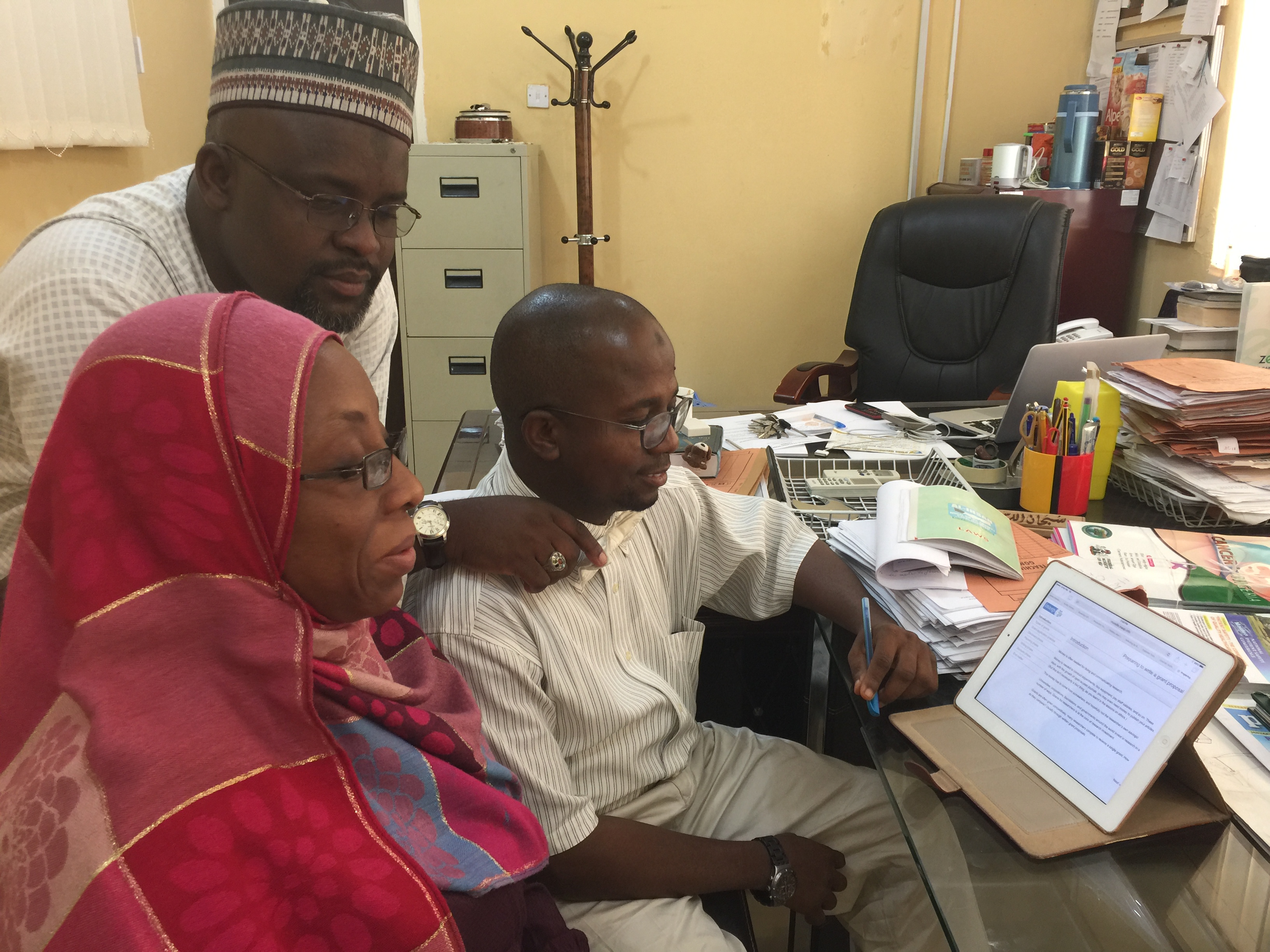The ripple benefits of winning grant funding
Introduction
Research grants play a crucial role for individuals, groups, institutions, and countries alike, despite some studies suggesting that funding for research may have little or no positive effects on research productivity. Fundamentally, research funding provides researchers with the means to carry out studies they deem important, with the intended and associated caliber and results. Research grants also play a major role in funding the infrastructure and other significant expenses (such as wages, travel expenses, conferences, publications, assistance, etc.) of many universities and research organizations. Today, research grants are recognized as a major source of income that universities have come to rely upon and an effective ladder for career advancement of researchers.
Research grants won or accessed through participating in international collaborative research projects are the main sources of research experience, infrastructure building, conference participation, complementary income, international collaborations, and scholarly publishing and citations for researchers and academics in the Global South as well. Researchers in the Global South are generally eager to collaborate on research projects with well-funded northern-hemisphere researchers because of the advantages of comparative resources and capacity building that these kinds of projects afford them, even in spite of the apparent imbalance in the nature of collaboration between researchers from the Global North and South.
Research funds exert subtle yet significant influences on the overall careers of their recipients.
Beyond the evident and typically formally articulated advantages for grantees, research funds also exert subtle yet significant influences on the overall careers of recipients, typically in the form of a rippling benefit after the funded research has been completed. A growing body of research shows an emerging picture of the positive indirect benefits that accrue to grantees as a result of their participation in grant-funded research. These can be discussed as related to the career, research funding, and research productivity of grantees.
Career security and advancement
Compared to non-grant winners, academics' careers are frequently on a higher upward trajectory after being awarded grants because many universities and research institutes base hiring, tenure, promotions, and pay increase decisions to a large extent on a researcher's performance in grant funding competitions. Grant-winning researchers are highly valued by their universities, as they provide funding and resources to meet a large fraction of their own as well as other researchers' expenses. Career longevity, advancement into higher roles, and career stability are also some of the benefits garnered from having a successful grantee profile. As an aspect of their career-related benefits, grantees usually see an increase in their personal prestige as well, both inside and outside their institutions. A portfolio of grants obtained, the expertise amassed from managing funded research, the esteemed publications generated from their funded research, the research resources under their control, and the relationships formed with reputable academics in their research area are the main sources of this kind of reputation. Such a prestige attracts more resources, opportunities, and acceptance inside and outside of their work sphere, which further reinforce the prestige and quality of the successful grantees.

More research funding
Researchers who have been successful in winning a research grant are more likely to win another, primarily for the cumulative advantage that they would have in meeting the requirements of research grant competitions. For example, previous funding success is one of the key criteria used by many funders to award new funding. Winning a grant also serves as a motivating factor for grantees to continue competing for more funding, meanwhile increasing their possibilities of winning again. It has also been noted that including the names of respectable previous collaborators in grant-funded research increases the likelihood of winning grant competitions.
Researchers’ productivity
Research productivity (measured in terms number of research projects conducted, the number and quality of peer-reviewed scientific publications produced, the number of citations received and the research collaborations established) is significantly influenced by researchers’ grant success.
- Scientific publications: Research indicates that after finishing a grant-funded research project, grantees usually publish a greater number of additional scholarly articles. The possible reasons for this include that the funding program may facilitate the publication and dissemination of additional research and the funding usually incentivizes researchers to devote more time and commitment to research and publishing than to teaching and consulting duties. Also, during and after completion of the funded research, grantees increasingly show higher trends of getting their papers accepted by highly reputable and prestigious journals. This happens, among others, due to the higher quality of the funded research which tends to persuade reputable journals to accept subsequent works of grantees; the possibility of reputable scholars being co-authors; and the finance made available by the funding which enables “open access publishing in reputable journals and [paying] for other forms of publication”. Some studies on this topic further suggest that grantees are conditioned to publish higher-quality, more impactful, and more highly referenced papers due to the grant they have won.
- Citations: Grantees also receive more citations for their funded research and subsequent papers. This is so, because scholarly publications resulting from funded research, authors with prestige, and authors with access to wider collaborations typically receive more citations (citations are widely considered as central measures of the impacts of authors and papers). The reasons for these include that papers from prestigious researchers may be expected to be more important, could be of higher credibility, and might add to the persuasiveness of the paper citing them. The citation of grantees' articles is also increased when prestigious co-authors who participated in the funded research are present.
- Research collaboration: After receiving funding for a study, grantees usually go on to collaborate on more research projects, both domestically and internationally. Grantees tend to draw in more new collaborations (for instance, PhD students wishing to work under them or colleagues from nearby institutions hoping to gain from the grantees' successes in securing funding for research). Both inside and outside of their institutions, their requests to start new research collaborations are typically met more favorably, too.
- Research conducted: Having conducted grant-funded research positions grantees to continue being involved in more research. With the success they are experiencing from the funded research, grantees tend to show preferences to conducting research over other institutional duties such as teaching and consulting. Their number of research projects also increases as a result of increased research collaboration. More research possibilities for grantees will further result from an increase in PhD student supervision opportunities. More funding opportunities they are anticipated to win as previous grant winner also imply more research by grantees.
A scientist's past success positively affects their success in the future.

It is important to note that the primary underlying factor explaining largely the rippling benefits of winning research funding is the phenomenon known as the “Matthew effect”, which broadly refers to “the general principle that advantage tends to beget further advantage” or “past success of an individual leads to a cumulative advantage in further developing his or her career.” In a research context, the Matthew effect can be described as “the tendency for a scientist’s past success to positively affect success in the future”. As regards research funding, the Matthew effect, as discussed above, is seen as influencing positively the job security and advancement, personal prestige, research funding success, and research productivity of grantees. The rippling benefits essentially are, thus, the by-products of winning research funding, usually occurring down the road in the careers of grantees.
In conclusion
Research funding contributes to achieving the research goals for which it was established formally. It also results in additional benefits for grantees in the form the capacity gained (resources, experiences, collaborations, etc.) and ripple benefits that accrue both during and after the funded research is completed. Thus, considering its profound effects on grantees' careers, the importance of winning research funding cannot be overemphasized. Because grant funding has the power to make or break research careers, academics and researchers should prioritize early in their careers having the knowledge, mindset, and abilities necessary to successfully navigate the world of research funding. Since the ripple benefits are usually most impactful when they occur early in a researcher's career, early career researchers in particular should focus on learning the ins and outs of research funding. Early career researchers should take into account several methods such as training, working under mentors, networking, and participating in experience building activities to ensure they are well-prepared for the world of research funding. Of particular importance for early career research to navigate well the world of funding are actively participating in small grants and internal funding competitions in order to build experience and a successful profile; engaging in deliberate practice of developing funding proposals individually and with senior colleagues to master grant writing; and studying the priorities and criteria of and reviews provided by target funding agencies in order to be able to develop grant funding proposals that are aligned with the expectations of the funders.
Gashaw Kebede is an independent scholar and consultant in knowledge management with more than 25 years of experience in scientific and scholarly communications. He consults for international organizations in the agriculture/development sectors mainly in Africa. Until the end of 2021, he taught and conducted research at Addis Ababa University, Ethiopia.
First photo by Firmbee.com on Unsplash
Second photo by Zainab Yunusa-Kaltungo
